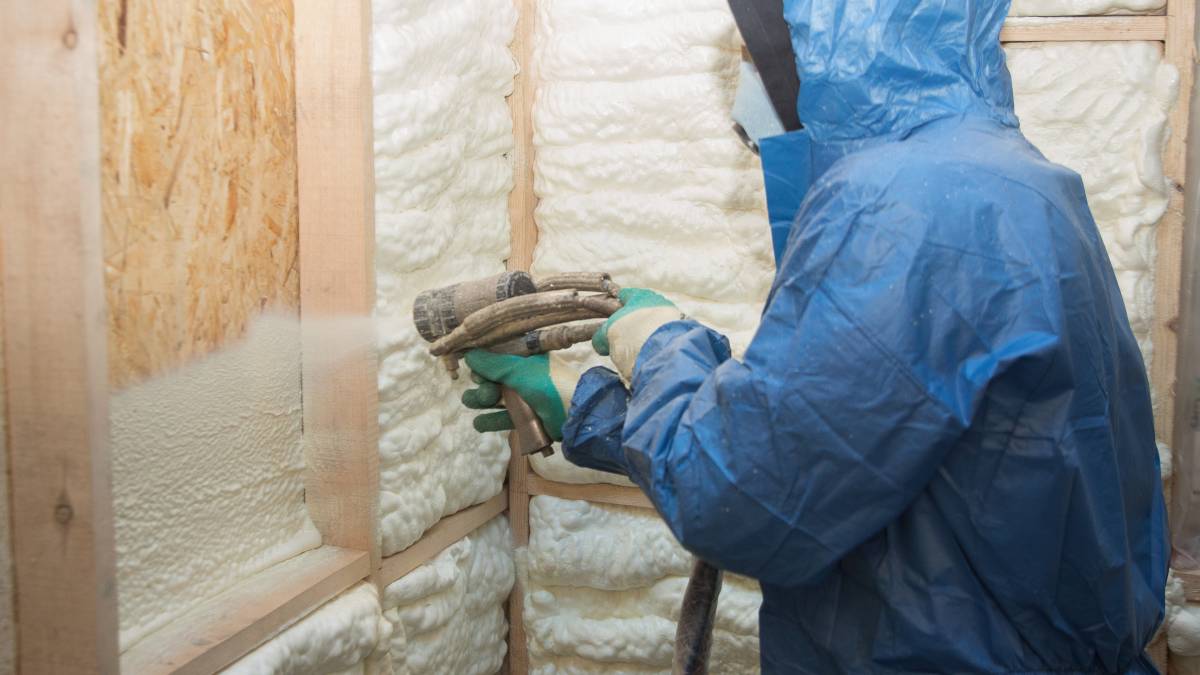Home Insulation Cost: What You Need to Know 2024
Proper insulation makes your home more energy-efficient and comfortable. But how much does it cost? This guide will cover the factors that affect insulation prices. We'll look at the type of material, project size, and complexity. Knowing these costs helps you make smart choices and save on energy bills.
Want to know how much insulation will cost for your home? This article will give you the details you need. It will help you pick the best option for your home and wallet.
Key Takeaways
- The cost of home insulation varies depending on the type of insulation material, the size of the project, and the complexity of the installation.
- Proper insulation can lead to significant energy savings and improved indoor comfort, making it a worthwhile investment.
- Researching and comparing insulation options can help you find the most cost-effective solution for your home.
- Hiring a reputable insulation contractor can ensure the job is done correctly and efficiently, maximizing the benefits of your investment.
- Understanding the factors that affect insulation costs can help you budget and plan for your home improvement project.

The Importance of Proper Home Insulation
Investing in energy-efficient insulation is key to better energy use, lower costs, and a cozy home. It helps you make smart choices that can cut your energy bills and improve your quality of life.
Energy Efficiency and Cost Savings
Good insulation is crucial for saving energy. It keeps your home warm in winter and cool in summer, reducing the work of your heating and cooling systems and saving you money on bills.
This investment in insulation leads to long-term savings. Homeowners can see the benefits of their choice over time.
Improved Comfort and Indoor Air Quality
Insulation does more than save money. It makes your home more comfortable. With even temperatures everywhere, you'll feel better every day.
It also means cleaner air inside your home. Without drafts and moisture, you're less likely to have mold or mildew. This is good for your health and your family.
Knowing the perks of energy-efficient insulation helps homeowners make better choices. It boosts energy efficiency, cost savings, comfort, and indoor air quality. It's a wise choice that keeps paying off.
Factors Affecting Insulation Costs
Home insulation costs can vary greatly based on several important factors. Knowing these factors helps you determine the total cost and make smart insulation choices.
Insulation Type and Material Prices
The insulation material you pick greatly affects the cost. You can choose from fiberglass, spray foam, and blown-in insulation, each with its benefits and prices. Fiberglass is usually the cheapest, but spray foam seals air better and keeps heat in, costing more.
The R-value, or how well insulation keeps heat in, also changes the price. This is important to remember when picking insulation.
Size and Complexity of the Project
The size and complexity of your insulation job can greatly affect the cost. Bigger homes and buildings with tricky layouts require more work, which increases their cost. If areas are hard to reach or require changes to the structure, it will cost more.
Choosing the right insulation material options and doing insulation r-value calculations affects the cost. Also, the insulation contractor rates in your area matter for the total cost.
Knowing these factors helps homeowners plan and budget for insulation. This allows them to make choices that fit their needs and budget.
Home Insulation Cost: Breaking Down the Numbers
Improving your home's energy efficiency is key. Knowing the cost of insulation is essential. The price changes based on the material, your home's size, and the project's complexity. Let's explore the costs of different insulation types.
Fiberglass is a popular and affordable insulation choice. Its price is between $0.50 and $1.50 per square foot. This depends on the R-value and thickness. Blown-in insulation, like cellulose or fiberglass, costs $1 to $2 per square foot. It's a bit pricier but great for attics and walls.
Spray foam insulation is another top choice for better insulation. It costs from $1 to $4 per square foot. High-end spray foam costs more but seals air and insulates well.
The project's size affects the insulation cost. Depending on the type and installation difficulty, insulation can cost $2,000 to $4,000 or more for a 1,500 square foot home.
These estimates are rough, and your project's cost may change. Your location, home condition, and project needs can affect the price. A professional insulation contractor can give you a precise estimate for your home.
Factors Affecting Insulation Costs
- Type of insulation material (fiberglass, spray foam, cellulose, etc.)
- R-value and thickness of the insulation
- Size and complexity of the project (attic, walls, basement, etc.)
- Labor costs and accessibility of the installation site
- Local market prices and availability of materials
Understanding insulation costs helps homeowners make smart choices. This ensures their homes are energy-efficient and comfortable.
Hiring an Insulation Contractor
Upgrading your home's insulation is a big step. It's important to work with a skilled insulation contractor. They have the knowledge and experience to make your insulation project go smoothly and save you money.
Finding a Reputable Professional
Looking for the right insulation contractor is key. Start by asking friends, neighbors, or local groups for recommendations. Make sure the contractor is licensed, insured, and has a good history of work. Check their portfolio, reviews, and certifications to see their expertise.
When you talk to contractors, notice how they communicate and answer your questions. A good contractor will give you a clear estimate. This should include what work will be done, the materials used, and when it will be finished. This helps you understand the costs and what to expect from your insulation project.
FAQ
How much does it cost to insulate a house?
Insulating a house can cost a lot, depending on the size, insulation type, and project complexity. On average, it can range from $1,500 to $6,000 for the whole house.
What are the different types of insulation, and what are their costs?
Common insulation types include fiberglass, spray foam, and blown-in insulation. Fiberglass costs $0.50 to $1.50 per square foot, spray foam costs $1 to $6 per square foot, and blown-in insulation costs $0.40 to $1.50 per square foot.
How much does it cost to insulate an attic?
Insulating an attic can cost between $1,000 to $5,000. This depends on the attic size, R-value needed, and insulation type. Blown-in insulation is usually the cheapest, costing $0.50 to $1.50 per square foot.
Is it worth it to insulate my home?
Yes, insulating your home is a smart move. It saves energy and makes your home more comfortable. You can save money on utility bills over time. Some insulation upgrades may even get tax credits or rebates.
How do I find a reliable insulation contractor?
Look for a qualified insulation contractor by checking their licenses, experience, and reviews. Get several quotes and ask for references. Make sure they know about local building codes and energy standards. This ensures your insulation is done right and efficiently.



